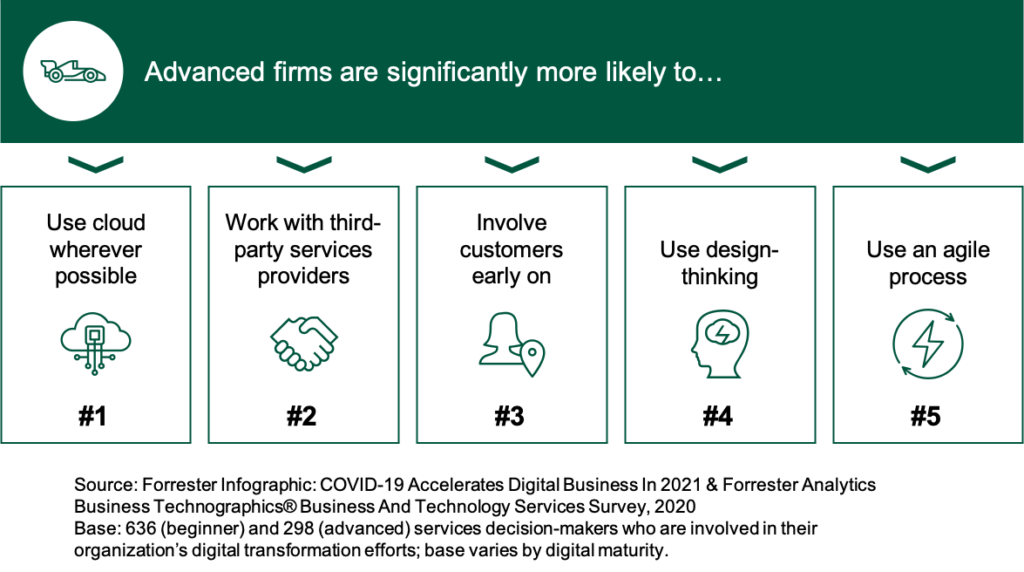COVID-19 Accelerates Digital Business In 2021
Forrester’s latest research on digital business maturity shows that business leaders now consider accelerating the shift to digital business the most critical priority in 2021. It should come as no surprise that COVID-19 has widened the digital business gap between digitally advanced firms and firms that were caught off guard by the pandemic. Less obvious are differences between how advanced firms operate compared with their less advanced counterparts. It’s clear that advanced firms are more future fit. They use their digital capabilities to help their businesses be adaptable, creative, and resilient.
Our maturity research divides firms into three categories of digital business maturity: beginner, intermediate, and advanced. Historically, advanced firms make up less than twenty percent of all organizations, and the same is true in our latest data. This means that despite spending more on digital transformation in the past 12 months, beginner and intermediate firms have been unable to catch up to digitally advanced firms.
Advanced Firms Double Down On Digital Business
As you would expect, our data shows that advanced firms are much more likely to be increasing their investments in digital transformation compared with beginner firms. These investments help advanced firms maintain a lead in the technology race that is digital business.
However, one of the key differences in our data between advanced and beginner firms is their ability to harness the power of collaborating with services partners. Thirty-seven percent of survey respondents in advanced firms told us that they relied more on services partners during the pandemic compared with just 19% of beginner firms. Many services partners worked with clients to accelerate their digital response to support employees in remote work and new digitally enabled distribution models. This type of partnership is a key driver of a future fit tech strategy as it helps to deliver resiliency in response to unexpected conditions while also accelerating adaptability and creativity.
Revenue Growth Versus Cost Reduction
We found that advanced firms are more likely to use digital transformation to drive revenue growth compared with beginners, where the greater focus is on reducing costs. This is an important shift, as leading companies focus more on effectiveness and resulting outcomes instead of efficiency and outputs. We also found that advanced firms are focusing more on improving IT capabilities to promote agility and innovation. This reflects the increasing importance of fixing underlying operational systems to get to the next level of digital business transformation. Agility and innovation are cornerstones in the adaptive and creative capabilities that companies need to deliver a future fit tech strategy.

To learn more about how Forrester can help accelerate your firm’s digital business to become more future fit, check out our related blog content and connect with me or anyone at Forrester.
Previous post: Digital Business, Part 3: Talent Management At Mars